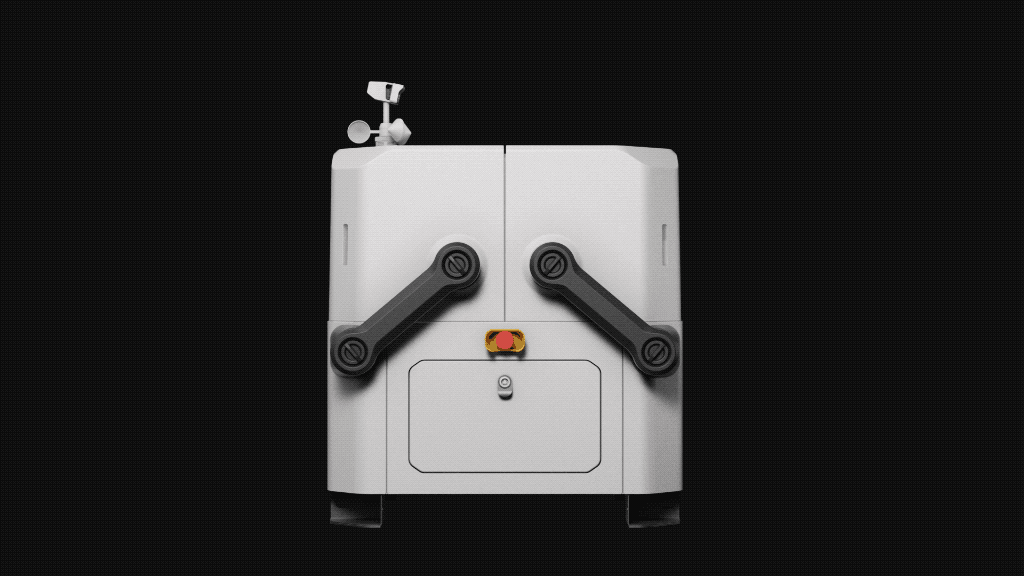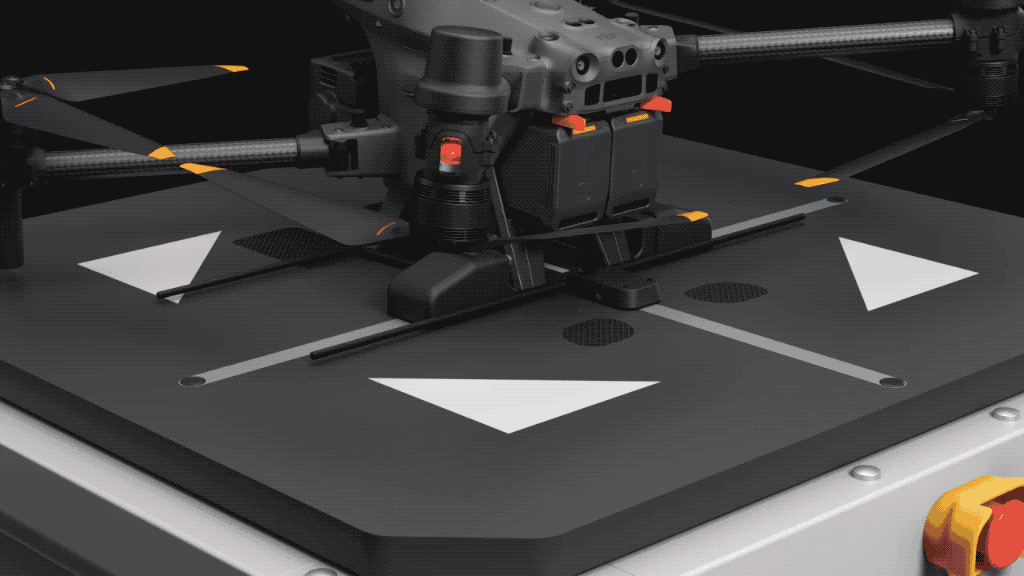Automatic drone operations and the future of remote asset inspections

Drone technology has impacted every industry that involves gathering data at scale. The next step is for these revolutionary tools to operate with greater autonomy in remote locations and without supervision. The launch of the DJI Dock makes this a reality. It’s a durable, easy to set up, fully-programmable base station for the Dock Version of the Matrice 30 Series. In other words: it’s everything you need to have automatic, repeatable drone workflows for asset inspection, and more.
Read on to learn more about five features that make the DJI Dock the future of remote drone operations.
A drone dock that’s built to last
If persistent drone operations are a priority, you’re going to need a solution you can depend on. The DJI Dock is IP55-rated and can operate in environments with temperatures ranging from -35 to 50 degrees Celsius. If the weather takes a turn for the worse during a mission, waterproof internals have you (and your M30) covered. And if the weather truly is too severe for the M30 to fly safely, the Dock will know thanks to its integrated weather station.

The DJI Dock’s self-sufficiency is built on both durability and smart redundancy features. Inside is an emergency battery. Even a sudden power loss won’t prevent your drone from getting back to base safely.
Our dock has been designed to be exposed to the environment so your team doesn’t have to be. It’ll keep vital missions automated and on course, 365 days a year.
Easy to set up, easy to maintain
The DJI Dock is easy to set up and is built to be easy to maintain. Even though it’s packed with features and functionality, it still has a <1 m2 footprint and weighs just 90 kg. Installation only needs four bolts, one for each bottom corner, a power source, an internet source, and a few minutes to configure with the DJI RC Plus.

DJI Dock's Health Management System tracks its status around the clock and will notify you through FlightHub 2 if there are any abnormalities.
In the unlikely event that something does go wrong, the entire dock has been made with modular components that make repairs straightforward.
We recommend bi-annual checks to ensure the dock is clear of dust, clean your M30’s sensors, and swap in new batteries. Aside from that and the flight instruction you provide, the system is completely independent.

Smart charging and fast turnaround
After landing, the M30 can be charged and airborne again in just 25 minutes. This rapid charging allows for fast turnarounds and round-the-clock persistence.
This is made possible, in part, by the Dock’s internal climate control, or air conditioning. When the drone lands, its batteries are hot and need to cool down to optimal temperatures for optimal charging. Cool air is blown through the batteries to cool them down so every charge is as efficient as possible.


The DJI Dock has two charging modes that offer flexibility no matter your mission parameters and work to prioritize long-term battery health. The charging mode can be determined by when your next mission is scheduled to launch. Alert mode keeps the M30 charged at 80-90%, so it’s ready to deploy at a moment’s notice. Standard mode keeps the drone battery at a steady 50% between flights, but will automatically charge it up to capacity ahead of its next mission.
7 km flight radius and 40 minutes of flight time
Automated aerial persistence is built on two foundations: range and flight time. A single M30 Dock Version will cover an operational radius of seven kilometers with 40 minutes of flight time per mission.

From power lines and railways to bridges and cell towers, one DJI Dock enables inspections of assets across a vast area. For greater coverage, multiple docks can be stationed at intervals and programmed to provide coordinated data. Two docks are all that’s needed to have a drone in the air at all times.
The M30’s range and flight time also combine to enable persistent site security, along with a regular eye in the sky on large-scale engineering and construction projects.
Fully programmable with DJI FlightHub 2
DJI Dock operations are managed through FlightHub 2. You can use the application to set up flight plans and mission schedules, handle data storage and management and collaborate with your team on data processing. Everything from mission planning to data review can be carried out remotely. It’s an unprecedented level of cloud control and oversight for remote operations.
We’re also launching DJI Dock with Cloud API access that will open the platform up for third-party developers. Enterprise users will be able to develop their own solutions and integrate dock operations into existing workflows. In short, we’re giving operators full control over this game-changing capability.
The future of remote asset inspection
The DJI Dock and the M30 Dock Version represent the next wave of industrial innovation. For organizations that already use drones to inspect remote infrastructure, these powerful tools promise round-the-clock persistence, seamless integration into existing workflows, and highly capable solutions no matter the location or conditions.
For those that are yet to adopt drone technology, unsupervised and automatic missions are a cost-effective alternative to manual data gathering - whether you’re providing site security or surveying construction progress.

Many jurisdictions around the world currently place restrictions on BVLOS and unsupervised flights. We’re confident the DJI Dock will become a powerful force for change in that regard. With fully-programmable operations, unmatched durability, and smart redundancy features, this is the next step in drone innovation.
To discover the DJI Dock’s full specifications click to view the DJI Dock brochure.